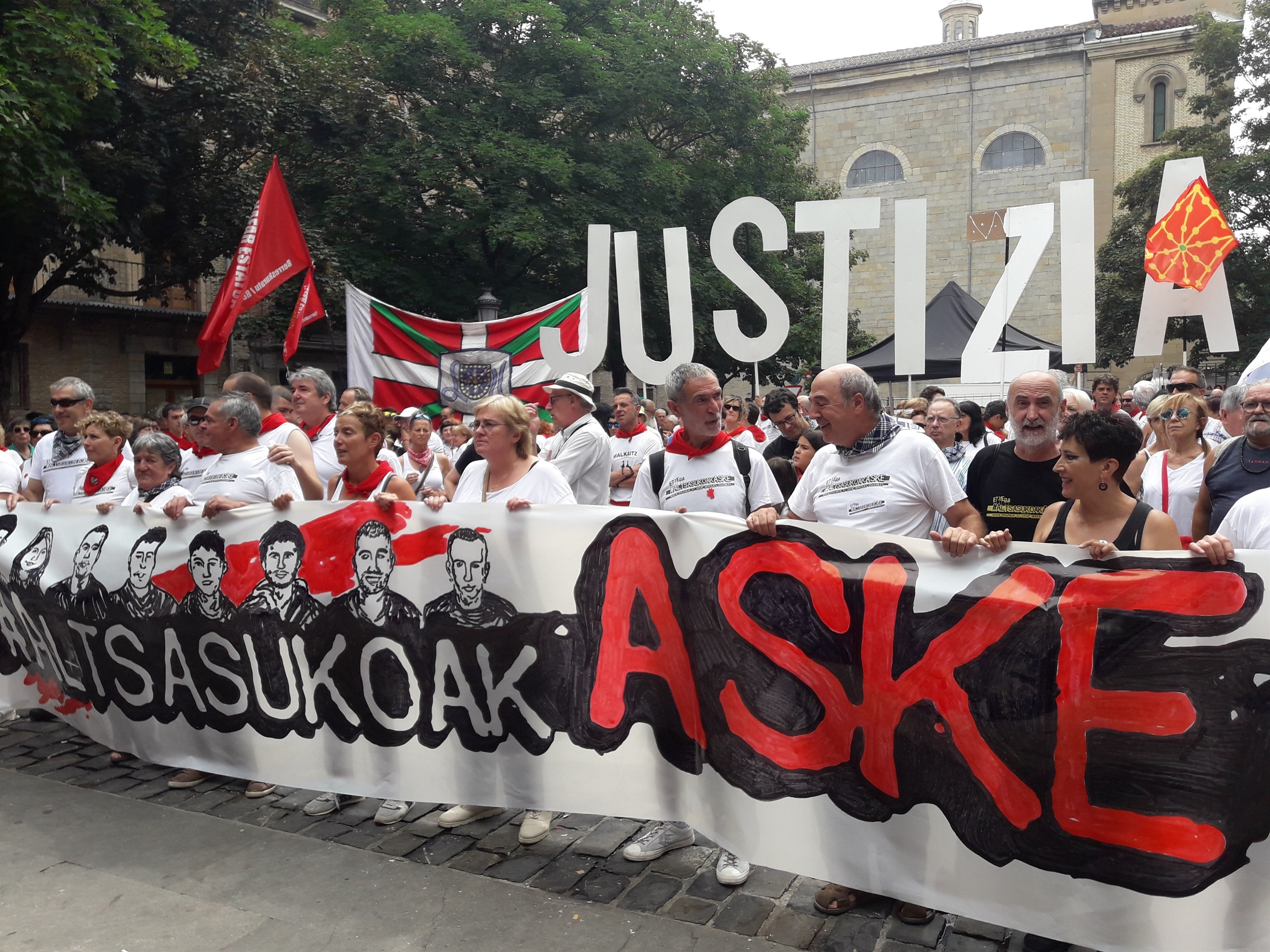Three of the young men imprisoned for the so-called Altsasu incident have been granted an open "third level" prison regime - after they have spent 1,325 days in prison. A Twitter account managed by families of the three men announced that Adur Ramírez de Alda, Jokin Unamuno and Oihan Arnanz have been told they would be able to start making use of the associated prison leave permissions from tomorrow. Thus, they will be allowed to leave Zaballa prison, the Basque Country penitentiary where they are currently held, and only return to the jail to sleep.
Of the seven people jailed in the controversial case - serving sentences of up to nine years after a bar fight in 2016 with two off-duty Civil Guard officers - five have now been granted the low-security third level prison regime. In December, Iñaki Abad and Aratz Urrizola, who were serving the shortest prison sentences of the group, were given the third level regime. The two other convicted men, Jon Ander Cob and Julen Goicoechea, are still jailed under a standard prison regime and, for the time being, no changes are expected in their situation.
Esta mañana, los funcionarios de la cárcel de Zaballa han comunicado a nuestros hijos Adur, Jokin y Oihan la obtención del tercer grado. En consecuencia, mañana mismo accederán a los permisos correspondientes a su nueva situación penitenciaria. #Altsasu #Alsasua #AltsasukoakASKE
— Altsasu gurasoak (@Altsasugurasoak) July 2, 2020
Translation:
"This morning, officers at the Zaballa prison informed our sons Adur, Jokin and Oihan that they had been granted their third level prison regime. Consequently, tomorrow they will access the permissions available under their new prison situation." — Altsasu gurasoak (Altsasu parents)
The incident at the centre of the case took place in the town of Altsasu, in Navarra. A fight took place one night in 2016 between some of the youths and a pair of Civil Guards who were off duty. The prosecutors accused the young Altsasu men of terrorism, and called for draconian sentences of up to 60 years. In the end these were rejected by the judges, and the men were found guilty of assault on authority, causing injury, disorder and threats - with jail terms as long as 13 years. After being appealed to the Supreme Court, the final sentences ranged from one year and six months in prison to nine years and six months.
In the Supreme Court reduction of the sentences initially imposed by Spain's National Audience court, the higher court stated that it was wrong to apply the aggravating factor of "discrimination" in the case. The Civil Guard is not a group which suffers discrimination, said the Supreme Court, and the sentences were reduced, in some cases by as much as four years.
Following the Supreme Court ruling, defence lawyers for the youths filed appeals with the Constitutional Court, which must now decide whether to hear the appeals or reject them. In the latter case, the Altsasu group would be able to take their case to the European Court of Human Rights.
"The video that puts in doubt the Civil Guard version at Altsasu"

